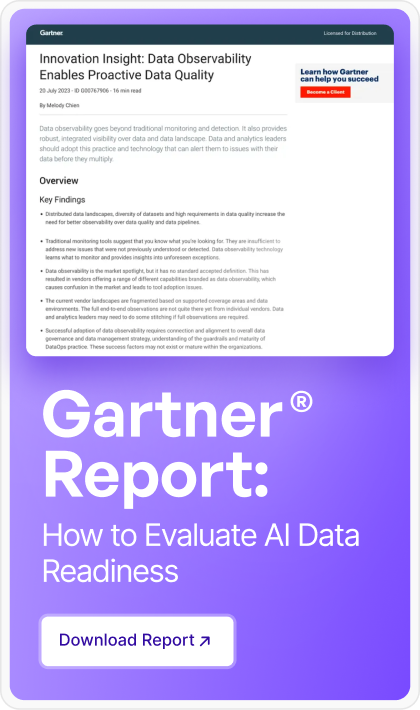Business success in the twenty-first century is no longer decided just by workforce or human capital; data and technology are important for boosting business growth. Data has become the driving force of modern organizations, with over 97% of business leaders wanting to use data to power their decision-making processes, optimize operations, and fuel innovation.
As businesses gather massive amounts of data from various sources, such as customer interactions, transactions, and IoT devices, managing this data efficiently has become important.
To stay competitive, organizations depend significantly on data to manage business analytics, create growth strategies, and develop future roadmaps. However, the huge volume, diversity, and velocity of data make it increasingly challenging to store, manage, and extract useful insights. This is where data warehouses come into play. A well-organized data warehouse is essential to managing this cluttered information, allowing organizations to use their data for decision-making and growth.
In this article, let's explore how data warehouse software can transform data storage and analysis, offering scalable and reliable solutions for managing large datasets effectively.
What Is a Data Warehouse?
A data warehouse is a centralized repository that consolidates data from multiple sources, stores it, and makes it easily accessible for querying and analysis. Unlike operational databases for day-to-day transactions, a data warehouse is optimized for large-scale big-data analytics, helping businesses discover trends, generate reports, and drive strategic decisions.
Data warehouses are important because they enable the smooth flow of information between different business departments and applications. By serving as the primary source of truth, they ensure data accuracy, consistency, and dependability.
Traditional Data Warehouses vs. Cloud-Based Solutions
The landscape of data warehousing has changed significantly. Traditional on-premises data warehouses can often be costly, difficult to operate, and have limited scalability. As data volumes increase, organizations need a solution to meet the increasing demand for storage and processing capacity, and a cloud-based data warehousing solution is the solution to the essential challenge. Let us learn more about traditional and cloud-based data warehouse solutions below:
Traditional data warehouses
Traditional data warehouses depend on physical, on-premises infrastructure that requires huge investments in hardware for storage and computing. They often experience high maintenance costs due to the need for regular updates, backups, and management by a dedicated IT team. Additionally, scaling these systems can be challenging and costly, making it difficult to accommodate growing data volumes efficiently.
Let us go through the disadvantages of the traditional data warehouses:
- On-premises infrastructure: Traditional data warehouses rely on physical servers and hardware, which requires huge investments in storage and computing power. Businesses must manage the hardware, including installation, upgrades, and hardware failures, leading to complexity.
- High maintenance costs: Maintaining traditional systems involves ongoing updates, backups, and security management expenses. These tasks often require a dedicated IT team, increasing the operational costs over time.
- Limited scalability: Scaling on-premises data warehouses can be challenging and expensive. It requires purchasing additional hardware and dealing with space and energy constraints. It also limits the ability to handle growing data volumes efficiently.
Cloud-based data warehouses
Cloud-based data warehouses integrate with various data sources, applications, and storage platforms, enabling businesses to centralize their data in a single location for analysis.
Let us go through the advantages of the cloud-based data warehouses:
- Unlimited scalability: Cloud-based data warehouses offer elastic storage that adjusts automatically as data grows, which eliminates the need for manual hardware expansion. Businesses can easily scale up or down based on their data demands without significant downtime.
- Cost-efficiency: Cloud data warehouses operate on a pay-as-you-go model, meaning companies only pay for the storage and resources they use. This leads to significant cost savings, especially for businesses with fluctuating data needs.
- Flexibility: Cloud-based solutions provide flexibility to integrate with various tools, allowing businesses to adjust their infrastructure as requirements change. This makes it easier to adapt to evolving technologies and market demands.
- Global accessibility: Data is stored on the cloud and can be accessed from anywhere globally, allowing teams to interact more effectively. This global accessibility promotes smooth operations, particularly among distributed teams and remote work environments.
Cloud-based data warehouse software is transforming the industry, allowing businesses to store and process data without the physical constraints and operational complexities of traditional methods. Solutions like Amazon Redshift, Google BigQuery, and Snowflake are leading this new era of cloud storage solutions.
Unlocking the Power of Data Warehouses: Key Use Cases
Businesses across industries are utilizing the data warehouse software for various applications. Let us go through some key use cases:
- Enterprise-level data storage: Data warehouses provide a centralized storage area where businesses can store all their data from various departments and sources. This centralized storage improves data access, allowing different teams to easily retrieve and analyze relevant data, which enhances reporting capabilities. By breaking down barriers, it supports cross-functional collaboration, ensuring everyone has access to the same reliable data for strategic decisions.
- Real-time analytics: Modern data warehouses enable real-time data processing, allowing businesses to instantly gain insights. This capability is crucial for industries where timely decisions are critical, such as finance or e-commerce. By utilizing real-time analytics, businesses can respond to changing market conditions, customer behaviors, and operational challenges faster, giving them a competitive edge.
- Big data analytics: Data warehouses are important for managing and analyzing massive datasets generated from customer interactions, social media, sensors, and more. These systems allow businesses to conduct predictive modeling, identify trends, and derive insights that can improve customer experiences, forecast demand, and optimize operations. With the rise of big data, effective data warehouse solutions are more critical than ever for extracting actionable insights.
Let us take the example of Netflix as a use case. Netflix relies on data warehouses to process and analyze vast user data in real time, helping the platform provide personalized content recommendations. By analyzing viewing habits, user preferences, and engagement patterns, Netflix tailors its recommendations to individual users, ensuring an optimized and engaging user experience. This data-driven approach is integral to maintaining user satisfaction and driving continued growth.
Real-World Applications: How Leading Organizations Utilize Data Warehouses
Many industry giants are already utilizing the power of data warehouse software to manage large-scale data storage and analytics:
- Amazon: It uses cloud-based data warehousing techniques to manage its supply chain and reduce shipping cost by 10-40%, personalize customer experiences, and optimize product recommendations.
- Walmart: With massive amounts of transactional data, Walmart employs big data analytics using data warehouse solutions to forecast demand, manage inventory, and enhance customer satisfaction.
- Pfizer: The pharmaceutical giant uses cloud data warehousing to store and analyze clinical trial data, ensuring accurate research outcomes and faster drug development
Maximizing Storage and Analytics with Acceldata’s Integration
As businesses adopt cloud storage solutions, integrating platforms like Acceldata can enhance performance, scalability, and cost-efficiency. Acceldata’s data observability platform integrates seamlessly with data warehouses, offering advanced insights into data flow, quality, and usage. With features like real-time monitoring, automated issue detection, and data quality management, businesses can optimize their data pipelines and reduce operational costs.
Acceldata enables companies to get the most out of their data warehouse software by:
- Improving data quality: Ensuring data is accurate, reliable, and consistent.
- Optimizing storage costs: Acceldata’s observability tools help businesses track and manage their cloud storage usage, minimizing waste and reducing costs.
- Enhancing analytics: By providing real-time insights into data flows, Acceldata enables faster and more accurate decision-making.
The Future of Data Storage and Analytics
The era of cloud storage solutions has arrived, and businesses that utilize current data warehouse software will profit from increased productivity, scalability, and cost management. As data volumes continue to rise, the need for optimal data storage and analytics will grow. Organizations can optimize their data operations by integrating technologies such as Acceldata, ensuring they remain competitive and data-driven in the evolving market. Request your Acceldata platform demo today to optimize your data storage.
Summary
Cloud-based data warehouse software is revolutionizing how organizations store, manage, and analyze data. By offering scalability, cost-efficiency, and real-time analytics, data warehouses help businesses optimize their operations and make data-driven decisions. Leading companies like Amazon, Walmart, and Pfizer are already utilizing these solutions to drive business outcomes. Integration with platforms like Acceldata enhances data quality, improves storage efficiency, and provides real-time insights, ensuring long-term success.








.png)








.webp)
.webp)


